Now that we’re well into spring, most barns are scheduling their semi-yearly vaccination and deworming day. Having an established deworming routine with your veterinarian is an essential part of horse ownership and barn management.
Don’t: Leave Parasites Unchecked
When left unchecked, internal parasites can wreak havoc on your horse’s overall health. If you notice your horse is inexplicably losing weight, rubbing his tail out, or developing a duller coat than normal, it may be a good idea to look into when his last deworming treatment was. Minor cases can be straightforward to treat. But larger infestations can cause serious damage and may lead to severe health complications including diarrhea, loss of appetite, lethargy, and colic.
Do: Keep Things Clean
There are several steps horse owners and barn managers can take to combat internal parasites at their farms. Maintaining a clean environment by removing manure piles, especially in shared paddocks, helps minimize the risk of spread between horses. In horses with suspected minor infestations, fecal egg counts can indicate whether a horse has elevated parasitic activity that needs treatment.
Stay On Schedule
Developing an effective yearly deworming schedule helps eliminate any parasites that may be growing. Every barn has a different deworming schedule, and strategies can vary based on geographic location, the average age of horses on the property, and types of turnout arrangements. For this reason, it is crucial to consult a veterinarian before beginning a deworming regimen.
Let Us Help YOU!
FarmVet offers a wide variety of dewormers with different active ingredients. Varying the active ingredients used between each treatment helps prevent parasite resistance. We’ve put together a guide to different ingredients so you and your vet can make the best choice for your horse’s needs!
Ivermectin

DuraMectin, ProMectin E Paste, Vetrimec Paste: Ivermectin is a popular choice as it provides broad-spectrum treatment against most types of parasites.
Moxidectin
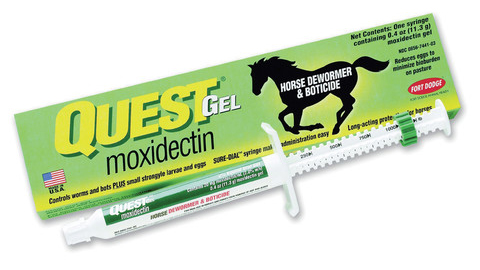
Quest: Moxidectin is the most effective ingredient against encysted small strongyles, as well as provides general defense against the other most common parasites.
Fenbendazole
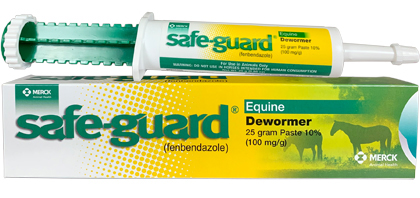
Safe-Guard: Fenbendazole is indicated to be particularly effective against ascarids, a type of worm that is found almost exclusively in foals and younger horses. The Panacur Powerpac provides a jumpstart on parasitic treatment with 5 consecutive days of treatment.
Pyrantel Pamoate
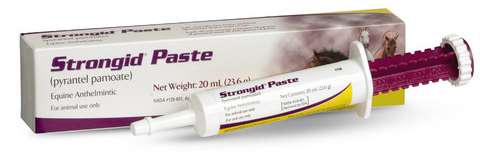
Strongid: When a double dose is used, Pyrantel Pamoate may be used to help protect against tapeworms. A single dose is indicated in the treatment of other common parasites.
Praziquantel
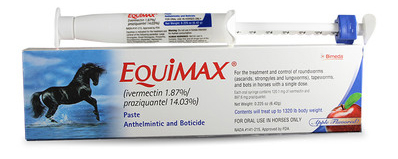
Equimax, Quest Plus: Praziquantel is only available in deworming products that also contain either Ivermectin or Moxidectin. This ingredient provides added protection against tapeworms.
Shop Now
Ready to get your horse on a deworming schedule? Shop HERE! Also, you can shop ALL of our products at FarmVet.com 24/7 or call one of our friendly Sales Associates at 1-888-837-3626. You can also email your order to info@farmvet.com.
Learn More
With deworming season also comes the shedding season. To keep your horse looking and feeling his best, read our blog for tips on how to Simplify Shedding Season!

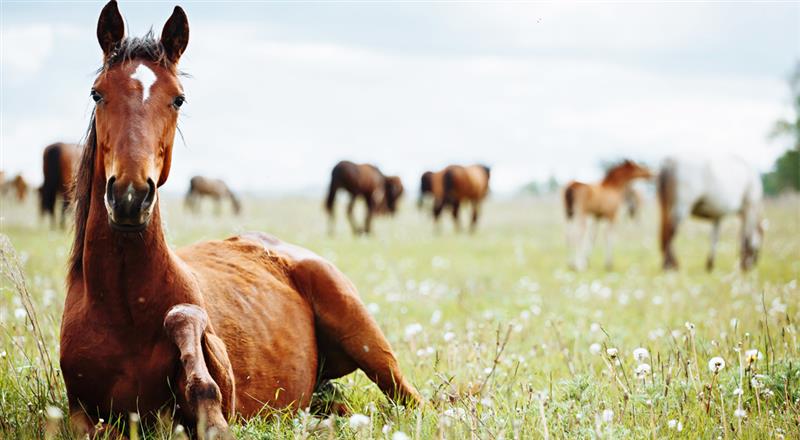
Leave a Reply